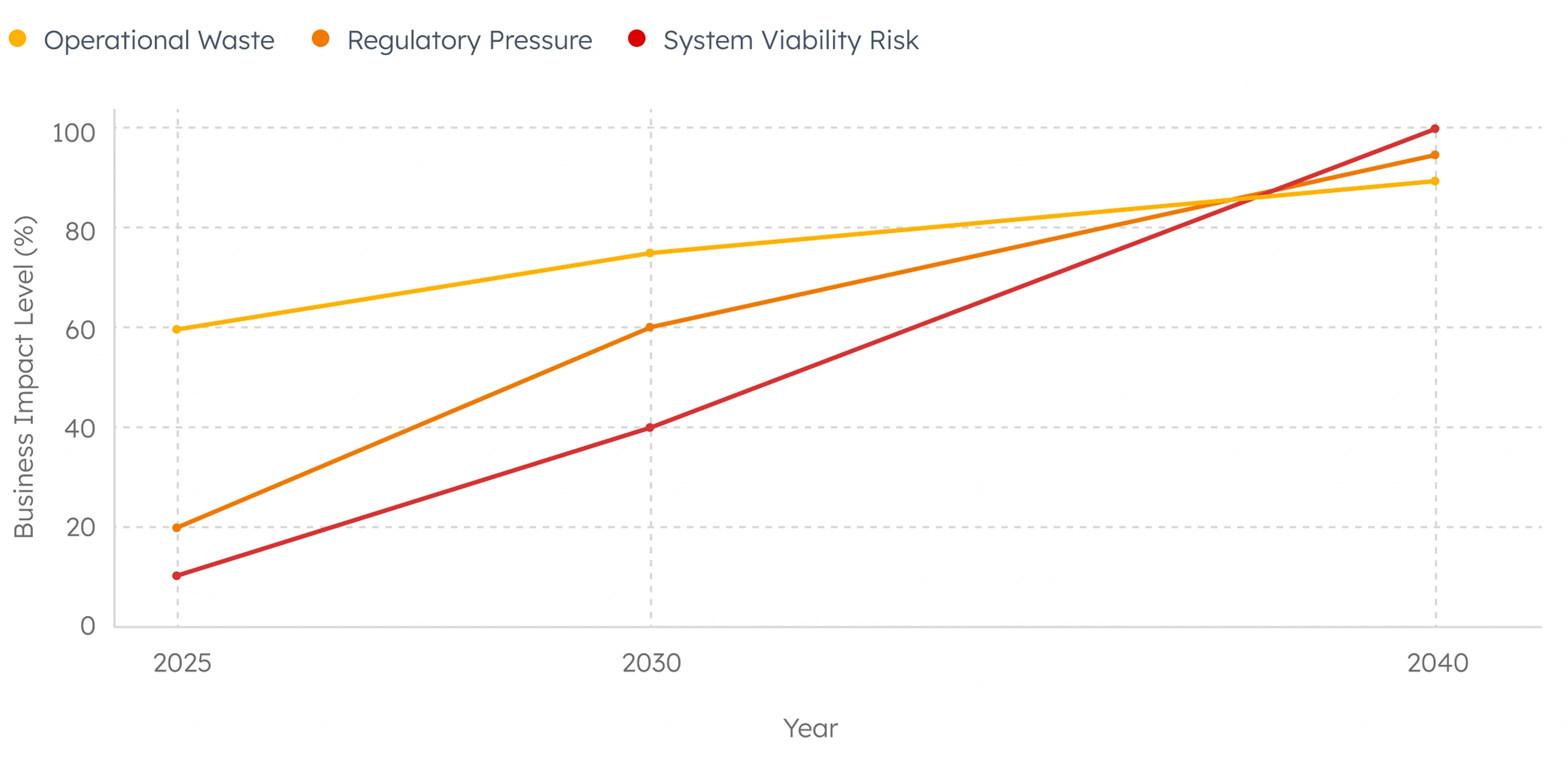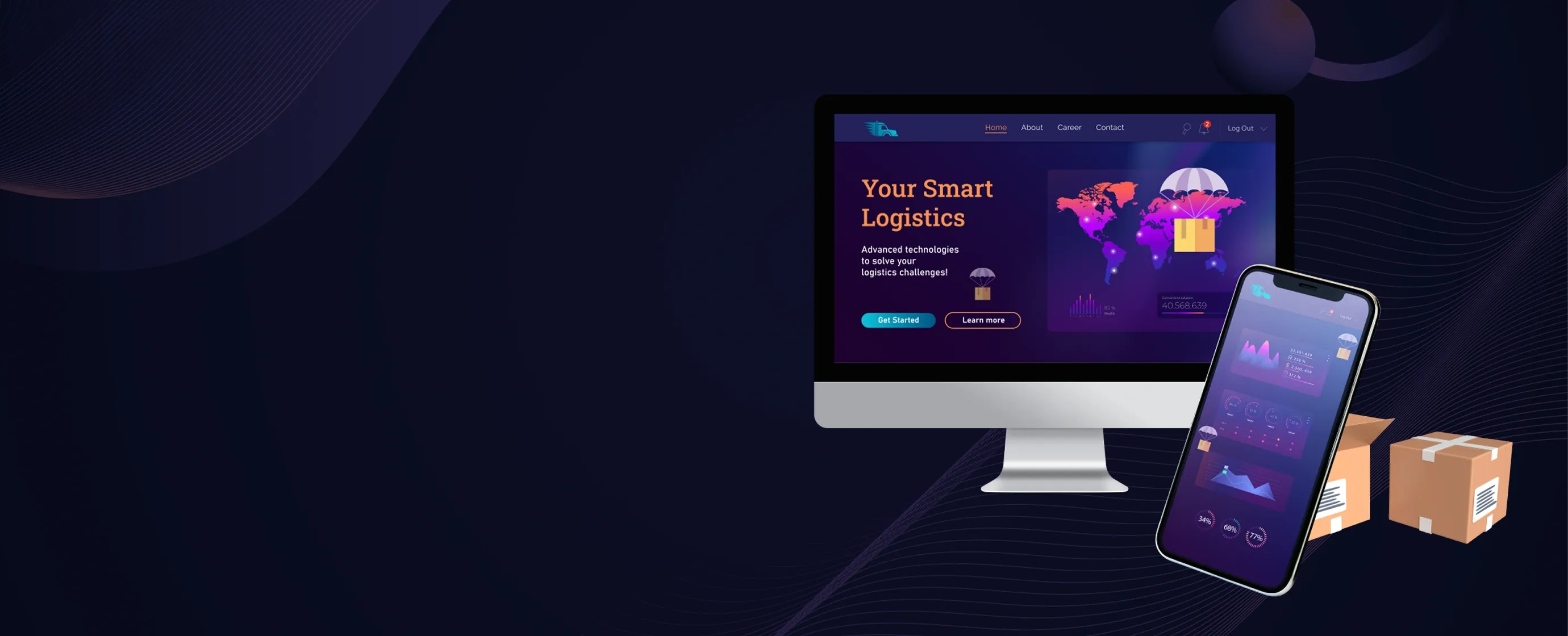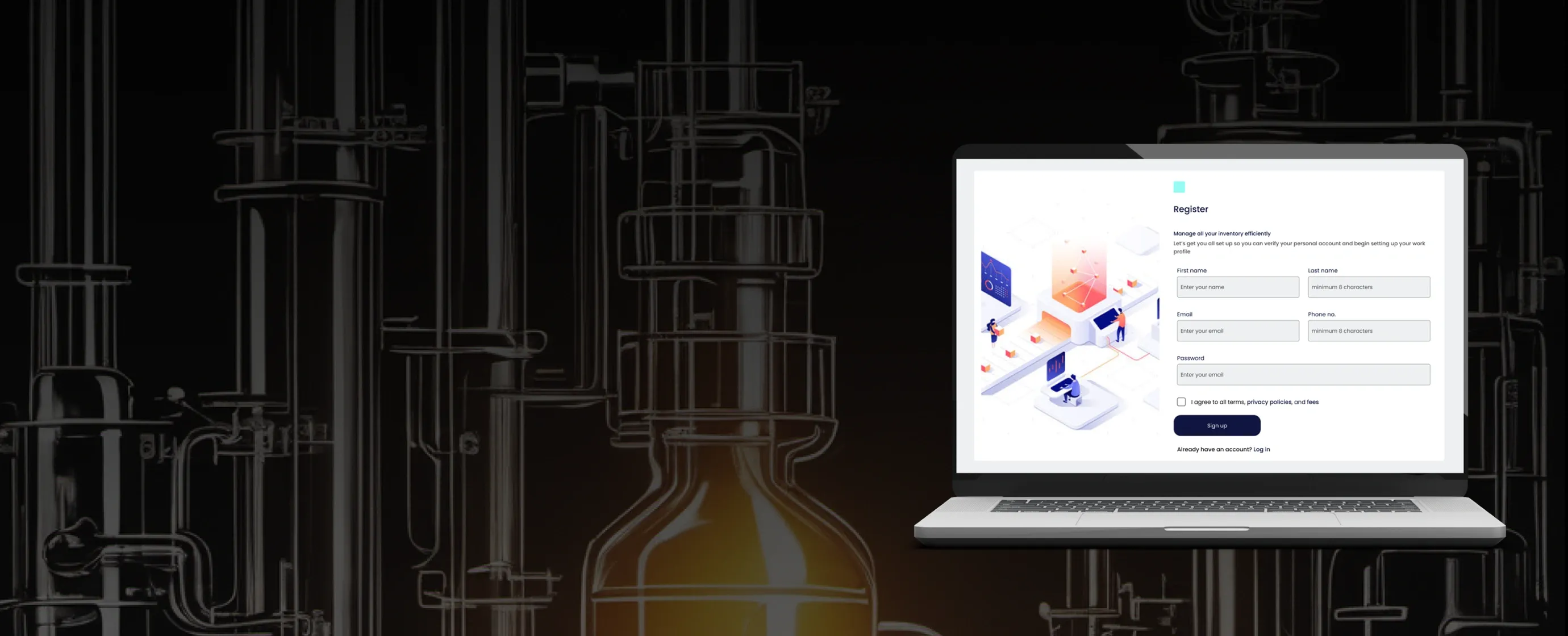
Sustainable software engineering
We build sustainable software solutions that help businesses cut emissions, lower infrastructure costs, and support ESG goals – without compromising performance.
2025: Wasted resources translate into real budget loss.
2030: Sustainability becomes mandatory in B2B.
2040: Unoptimized systems become non-compliant – or too expensive to run.
Resilience through end-to-end sustainable software development
Strategic ESG alignment from day one From the earliest stages, product roadmaps are shaped around eco-criteria – including equipment lifecycle, architectural choices, and regulatory foresight – for long-term resilience and compliance. |
Cost-efficient code with low energy demand We apply sustainable software design principles and use energy-efficient languages to reduce backend load, speed up applications, and lower cloud and maintenance expenses. |
Scalable systems with minimal resource use Interfaces and infrastructures are engineered for low-resource operation – maintaining performance while reducing energy consumption and cloud overload risk. |
Energy-efficient interfaces with eco-mode UX Through our software product design services, we incorporate sustainable UI/UX patterns that lower resource usage, especially in mobile and edge environments. |
Reduced cloud spending and carbon footprint With autoscaling, green-region selection, and workload efficiency, we deliver sustainability software solutions that minimize compute usage and operational costs. |
Lower-impact AI with full performance AI and ML models are optimized for energy-aware training and inference, ensuring carbon-conscious scalability without inflating infrastructure spending. |
Sustainable DLT for regulated industries As part of our broader ESG IT services, we guide clients in selecting blockchain technologies that meet sustainability criteria and minimize environmental load. |



Can your software run cleaner – and cheaper?
Find out in a free consult. Results, not assumptions.
Sustainable software development practices start with how we work

Distributed
teams built for resilience and global delivery
98%
of work devices meet energy-efficiency standards
100%
paperless operations across all business units
Eco-friendly
office practices
In-house
sustainability awareness lectures
Industry-focused sustainability and ESG services that drive results
Fintech
Transaction systems are heavy. Infrastructure is over-provisioned “just in case.” We deliver sustainable impact software to reduce compute loads and keep ops fast, secure, and cost-efficient – without rewriting your core.
Healthcare & Medtech
Many systems still run on legacy medical devices and slow, oversecured infrastructure. Modsen develops secure, low-footprint tools that perform reliably – extending hardware lifespan and reducing resource strain.
E-commerce & Retail
Massive traffic, spiky demand – and no room for waste. We build leaner storefronts using sustainable product development software, streamlining every interaction to cut load, cost, and churn.
SaaS & Enterprise
Most stacks carry dead weight – code, features, compute. Leverage our expertise to trim infrastructure, optimize usage, and build interfaces that serve users without draining your team.
Logistics & Supply chain
Disconnected systems, inefficient routing, and opaque supplier data kill both performance and margins. We deploy sustainability software solutions that streamline operations and make waste traceable – and fixable.
Manufacturing & Industrial
Equipment runs until failure, energy flows untracked. Our team helps build predictive, software-driven systems that monitor, simulate, and improve performance – before problems hit production.
Modsen’s sustainable software development that pays off now – and later
How our ESG and sustainability services work in real projects
Sustainable software engineering – the questions we
hear most
Our software needs to meet ESG expectations – how do we actually get there?
Won’t sustainability slow down our delivery?
Our users expect top performance. Can eco-friendly features coexist without hurting user experience?
Cloud bills are skyrocketing. Can sustainability help here?
How can we be sure that making our software ‘greener’ won’t increase our costs?
What role do AI and machine learning play in green computing solutions?

Build leaner. Scale smarter. Impact more with less.



